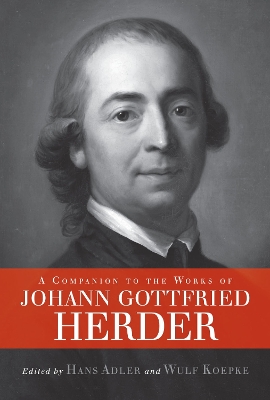Johann Gottfried Herder (1744-1803) is one of the great names of the classical age of German literature. One of the last universalists, he wrote on aesthetics, literary history and theory, historiography, anthropology, psychology,education, and theology; translated and adapted poetry from ancient Greek, English, Italian, even from Persian and Arabic; collected folk songs from around the world; and pioneered a better understanding of non-European cultures.A student of Kant's, he became Goethe's mentor in Strasbourg, and was a mastermind of the Sturm und Drang and a luminary of classical Weimar. But the wide range of Herder's interests and writings, along with his unorthodox ways of seeing things, seems to have prevented him being fully appreciated for any of them. His image has also been clouded by association with political ideologies, the proponents of which ignored the message of Humanitat in histexts. So although Herder is acknowledged by scholars to be one of the great thinkers of European Enlightenment, there is no up-to-date, comprehensive introduction to his works in English, a lacuna this book fills with seventeennew, specially commissioned essays.
Contributors: Hans Adler, Wulf Koepke, Steven Martinson, Marion Heinz and Heinrich Clairmont, John Zammito, Jurgen Trabant, Stefan Greif, Ulrich Gaier, Karl Menges, Christoph Bultmann, Martin Kessler, Arnd Bohm, Gerhard Sauder, Robert E. Norton, Harro Muller-Michaels, Gunter Arnold, Kurt Kloocke, and Ernest A. Menze.
Hans Adler is Halls-Bascom Professor of Modern Literature Studies at the Universityof Wisconsin-Madison. Wulf Koepke is Distinguished Professor Emeritus of German, Texas A&M University and recipient of the Medal of the International J. G. Herder Society.
- ISBN10 157113395X
- ISBN13 9781571133953
- Publish Date 30 April 2009
- Publish Status Active
- Publish Country US
- Publisher Boydell & Brewer Ltd
- Imprint Camden House Inc
- Format Hardcover
- Pages 502
- Language English
